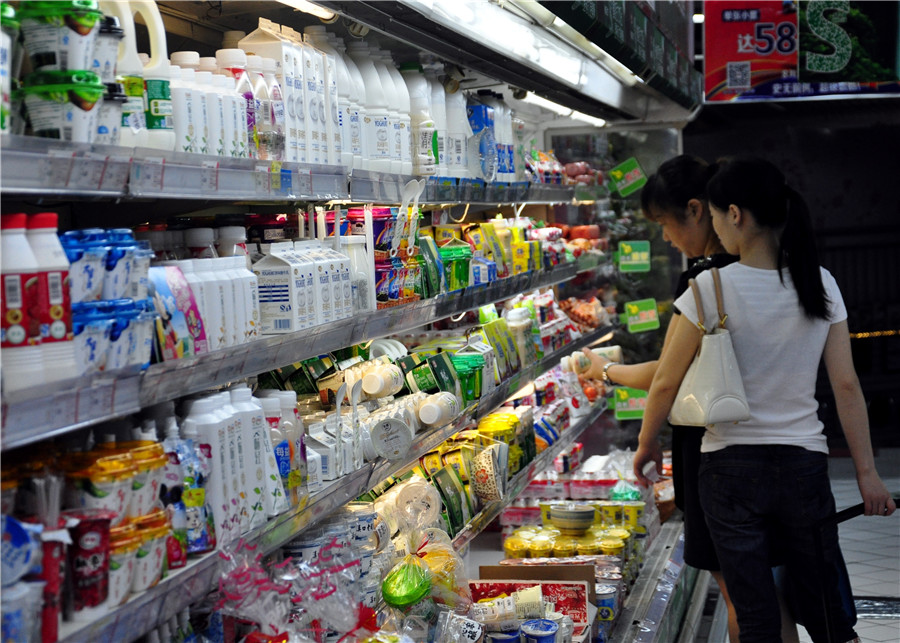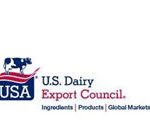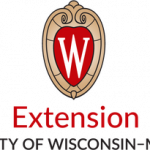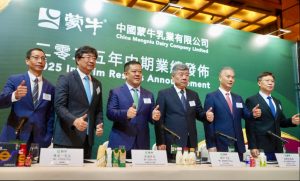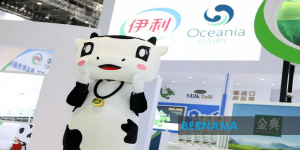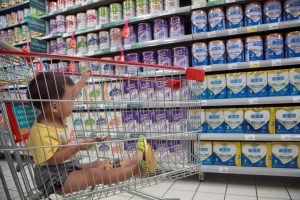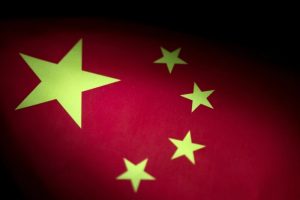
As China’s overweight population increases, meal replacement products are attracting much attention from food and beverage companies as well as investors.
A study published in The Lancet Medical Journal in 2016 showed that 10.8 percent of men and 14.9 percent of women in China were obese, bumping the United States into second place in terms of overweight population.
The younger generation is increasingly turning to meal replacement products, either in the form of powder or liquid, for weight loss or to improve overall general health.
According to a recent report jointly compiled by market analytics provider CBNData and the food department of online retailing platform Tmall under Alibaba, the sales volume of meal replacement products surged by 50 percent year-on-year in 2018.
About half of the consumers of such products came from first and second-tier cities.
Last year witnessed a turning point for the major consumers of meal replacement products in China, according to the report. While people born in the early 1990s made up the majority of meal replacement consumers, the even younger generation born after 1995 contributed for most of the sales growth in 2018.
With decades of development in mature markets in the US and Europe, meal replacement products are available in various forms – powder, liquid and bars – and feature many big names such as Los Angeles-based Soylent, San Francisco-based SuperBodyFuel, Mana from the Czech Republic and Huel from the United Kingdom. Six-year-old Soylent completed its $50-million series B financing in 2017, which was led by Google Ventures. With that, Soylent’s total financing has reached $74.5 million.
Global market consultancy Euromonitor International estimated that the total market value of Chinese meal replacement products will reach 120 billion yuan ($17.4 billion) in 2022 with a projected compound average growth rate of about 5 percent.
But international nutrition product leaders have taken the lion’s share in China. According to Euromonitor, Los Angeles-based Herbalife takes up more than 80 percent of the Chinese meal replacement market, while Michigan-headquartered Nutrilite and Sweden’s Oriflame occupying the second and third places in China.
Meal replacement products are highly profitable. Statistics provided by the Food and Beverage Innovation Forum 2019 held recently in Hangzhou, Zhejiang province, showed that even yogurts, snacks and so-called energy bars that claim to have the same function as meal replacement products, are priced 40 to 200 percent higher than their regular counterparts.
In this sense, the Chinese companies have caught up.
The domestic giants have stepped into the market. At the beginning of 2018, Mengniu Dairy Co Ltd announced its entry into the meal replacement market with the introduction of a yogurt with fiber.
Its longtime competitor Yili Group made the move much earlier, as it launched a multigrain milk product more than 10 years ago that claimed to have the same function as meal replacements. Beverage giant Hangzhou Wahaha Group Co Ltd rolled out a red yeast rice beverage and a quinoa biscuit in the second half of last year.
Startups are also attracting attention. Zhejiang Ruofan Food Technology Co Ltd, which produces meal replacement tablets, was founded in Hangzhou in 2015. Although the company did not see a spike in new customers, it has registered relatively high repeat purchases, said Ruofan’s founder Shao Wei.
More than 10,000 loyal consumers buy at least 10 meals every month, which is equal to roughly 225 yuan.
The main distribution channels of Ruofan are online platforms including WeChat’s e-commerce channel, Taobao and JD. After introducing liquid products in May last year, the company’s turnover more than doubled in 2018 to more than 50 million yuan, said Shao.
Shao said that more than 85 percent of the company’s customers are men aged between 18 and 49, mostly professionals in first-tier cities.
Cao Peng, founder of Shanghai MySmeal Biotech Co Ltd, started to promote and sell the New Zealand meal replacement brand Smeal in November 2017.
Chinese consumers do not need to be educated about meal replacement products, according to Cao. They are familiar with the products. What they need is products that can meet or even exceed their expectations, and this is an opportunity for Smeal, he said.
“We have chosen a relatively mature market because we know that we do not have the ability to educate consumers. For ordinary startups, the risks involved in trying to educate the market are too high,” he said.
What differentiates Smeal from its peers and helped Cao decide to step into the meal replacement market is the design of the product – powder stored in a bottle rather than a paper bag. In this sense, the design adds another positive aspect to the product besides health and taste, which is convenience.
As a result, Smeal has won more than 16,000 thumb-ups on social shopping app Xiaohongshu and more than 500,000 Xiaohongshu users have expressed willingness to try Smeal products.
“Bottled powder will become prevalent in the food and beverage industry in the next five years. Based on this design, we can introduce more products into the market, such as bottled probiotics,” he said.
